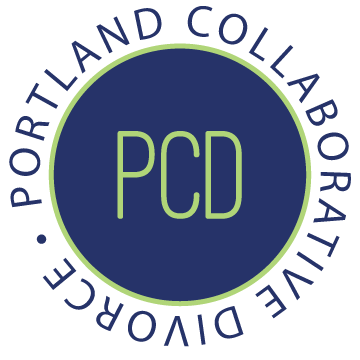Privacy and Confidentiality in the Collaborative Process
One of the concerns we hear most often from clients considering the Collaborative Divorce Process is the degree to which their discussions and agreements are private and confidential. This concern is both related to the “public” component of a filed divorce, as well as the “private” sessions engaged in by the Collaborative team.
Will my divorce terms be made public?
The Collaborative Divorce Process does provide a greater element of privacy as compared to court. In a courtroom, any testimony or evidence being offered is public information. Members of the public are allowed to attend trials, so often there are strangers, friends, or family members present in the room. Some clients are uncomfortable with the personal details of their lives being made public in this way, and so prefer the privacy of negotiating and reaching agreements outside of court. The Collaborative Divorce Process allows for that level of privacy.
Once a divorce trial has concluded, or once a settlement agreement has been reached, the outcome is memorialized in a Judgment. That document does become part of the public record. There are certain facts or details which must be included in the Judgment. However, the Collaborative Process certainly gives the drafting lawyers more leeway in terms of how much information to reveal. In the litigation realm, a judge will generally identify “findings of fact” that must be included in a Judgment. In contrast, when we have settled a case in the Collaborative Process, lawyers can agree on how facts are presented. This allows us to provide a greater element of privacy, both for financial matters and for the personal details about a family.
Will I be able to have confidential communication with my lawyer during the Collaborative Process?
Yes. Although the process is a team-based environment, clients maintain a confidential relationship with their respective attorney. In between meetings, clients and lawyers can discuss goals, options, and other details with complete confidentiality. During team meetings, clients always have the option of taking a break to have a one-on-one confidential conversation with their attorney. Each attorney will provide his/her client with legal advice and advocacy throughout the process.
That said, because the Collaborative Process requires transparency, clients are asked to agree to disclosure in general to the rest of the team. If a client refuses to disclose information that an attorney deems necessary to resolve the case, the confidence will be honored but the attorney will likely be required to withdraw from the team or terminate the process completely.
Can my statements in meetings be used against me in court, if the team breaks down?
No. The Collaborative Divorce Process is confidential. The Participation Agreement signed by the lawyers and the parties includes a non-disclosure provision. All negotiations and team meetings are considered confidential settlement negotiations. Neither lawyers nor parties may be compelled to testify in a later proceeding about those negotiations.

